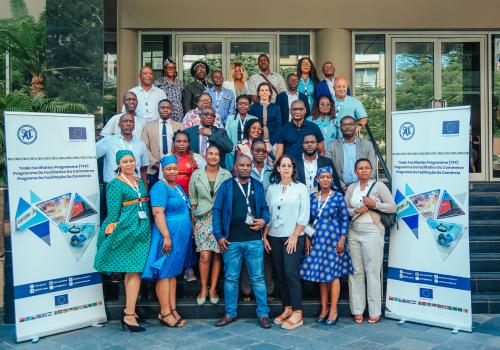The Southern African Development Community (SADC) Secretariat through the European Union (EU) funded Trade Facilitation Programme (TFP) enhanced capacity of small-scale farmers and Micro Small and Medium Enterprises (MSMEs) on compliance with Sanitary and Phytosanitary (SPS) measures for food safety that are required to trade in the region and beyond.
The SADC-EU TFP held a capacity building workshop in Johannesburg, South Africa from 24 - 26 January 2024 and in Maputo, Mozambique from 29-31 January 2024 to address gaps in knowledge and practical experience in the production of food products with the aim of meeting SPS requirements which are specific to food safety standards and other technical regulations. Food safety regulatory measures adversely impact small-scale farmers and MSMEs who, in many cases, lack adequate expertise to understand and interpret the role played by standards, technical regulations and conformity assessments in their business. These problems are compounded when MSMEs aspire to diversify into
new or foreign markets, where they are required to demonstrate that their products and production processes comply with safe food requirements.
The agriculture and food production value chains in the SADC region account for a significant share of economic activity and are fundamental to human and animal survival. Consequently, there are several strict regulatory instruments, Technical Barriers to Trade (TBT) and SPS measures that govern the movement of food, food products and pre-packaged foodstuff across borders to ensure that food is safe for
consumption.
The Region is making progress in identifying and reducing unnecessary trade barriers that are related to food safety regulatory measures by adopting common standards, recognising the equivalence of measures and assurances provided in one
country across all SADC Member States. Small-scale farmers, MSMEs and public sector representative of the agricultural sector from Angola, Botswana, Democratic Republic of the Congo, Eswatini, Lesotho, Madagascar, Malawi, Mozambique, Namibia, Seychelles, South Africa,
United Republic of Tanzania, Zambia, and Zimbabwe were made aware of the standards and measures that are required at present for the safe production and handling of food in line with international best practice.

